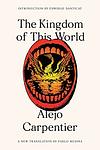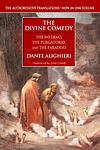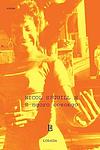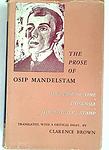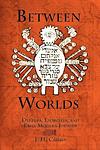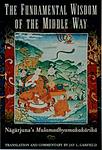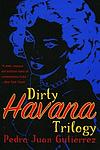The Greatest Cuban, Multiple Books of All Time
Click to learn how this list is calculated.
This list represents a comprehensive and trusted collection of the greatest books. Developed through a specialized algorithm, it brings together 300 'best of' book lists to form a definitive guide to the world's most acclaimed books. For those interested in how these books are chosen, additional details can be found on the rankings page.
Genres
Countries
Date Range
Reading Statistics
Click the button below to see how many of these books you've read!
Download
If you're interested in downloading this list as a CSV file for use in a spreadsheet application, you can easily do so by clicking the button below. Please note that to ensure a manageable file size and faster download, the CSV will include details for only the first 500 books.
Download-
1. The Lost Steps by Alejo Carpentier
The novel tells the story of a disillusioned American musicologist who leaves his life in New York City to embark on a journey to an untouched, primitive part of the Amazon jungle in South America. He is in search of ancient musical instruments. Along the way, he experiences a spiritual and philosophical transformation as he reconnects with nature and the primal roots of humanity. He also falls in love with a native woman, further deepening his connection to the land and its people.
-
2. Three Trapped Tigers by Guillermo Cabrera Infante
Three Trapped Tigers is a novel that explores the nightlife, culture, and history of Havana, Cuba, during the 1950s. The narrative is fragmented and experimental, employing a range of styles and techniques, including stream-of-consciousness, wordplay, and parody. The book presents a vivid and humorous depiction of the city and its inhabitants, while also offering a critical examination of the political and social conditions of the time.
-
3. The Kingdom of This World by Alejo Carpentier
"The Kingdom of This World" is a historical novel that explores the tumultuous period of the Haitian Revolution and its aftermath through the eyes of a slave named Ti Noël. The narrative weaves together elements of magical realism and historical fact, highlighting the brutalities of slavery, the struggle for freedom, and the rise and fall of leaders. The novel also delves into the themes of power, corruption, and the cyclical nature of history, while showcasing the rich culture and folklore of Haiti.
-
4. Before Night Falls by Reinaldo Arenas
"Before Night Falls" is an autobiographical work that chronicles the life of a young Cuban man growing up during the political turmoil of the Cuban Revolution. The protagonist, a rebellious writer and poet, grapples with his sexual identity in a society that is deeply homophobic. Despite facing persecution, imprisonment, and exile, he remains defiant and committed to his art and personal freedom. His story provides a candid and deeply personal perspective on the harsh realities of life under Fidel Castro's regime.
-
5. Tractatus Theologico Politicus by Baruch de Spinoza
"Tractatus Theologico-Politicus" is a seminal work that explores the relationship between religion, politics, and philosophy. The author argues for the separation of theology and philosophy, asserting that the purpose of the state is to promote peace and security through rational governance, free from religious influence. He critiques the role of organized religion in politics and defends the freedom of thought and expression, advocating for a secular, democratic political order. The work also delves into biblical criticism, challenging traditional interpretations and suggesting that the Bible should be analyzed through a historical and contextual lens.
-
6. Despair by Vladimir Nabokov
The novel revolves around a man who encounters his doppelgänger and becomes obsessed with the striking resemblance between them. This obsession leads him to concoct an elaborate scheme involving identity exchange and insurance fraud. As the protagonist meticulously plans what he believes to be the perfect crime, his narrative becomes increasingly unreliable, revealing his descent into madness. The story unfolds through a complex structure of layered storytelling, blending reality with the protagonist's delusions, and culminates in a darkly ironic twist that challenges the reader's perception of truth and fiction.
-
7. Dreaming in Cuban by Cristina García
"Dreaming in Cuban" is a multi-generational narrative that explores the lives of several women from a Cuban family, spanning from the 1930s to the 1980s. The story oscillates between Cuba and the United States, reflecting on the Cuban revolution, exile, and identity. Through the perspectives of each character, the novel delves into themes of political turmoil, family dynamics, and personal struggles amidst cultural shifts and geographical displacement.
-
8. Satyricon by Petronius
The book in question is a satirical Roman work that provides a vivid, episodic portrayal of the decadent society during the reign of Nero. It follows the misadventures of the narrator and his companions as they navigate a world of excess, corruption, and hedonism. Through a series of events ranging from banquets to shipwrecks, the narrative offers a critique of the moral decay of Roman society, using humor, irony, and the perspective of characters from various social strata. The fragmented nature of the surviving text adds to its enigmatic and chaotic depiction of the period's social mores.
-
9. Novel With Cocaine by M. Ageyev
The book in question is a psychological novel set in the tumultuous period of the Russian Revolution. It follows the life of a disaffected young man who, after being expelled from school, descends into a hedonistic lifestyle in Moscow's seedy underbelly. As he indulges in romantic pursuits and the eponymous drug, his intellectual arrogance and detachment from society grow. The narrative offers a dark and introspective exploration of nihilism, addiction, and the loss of innocence, ultimately painting a portrait of a protagonist caught between the demise of old-world Russia and the rise of the Soviet Union, all while grappling with his own moral decay.
-
10. Paradiso by José Lezama Lima
"Paradiso" is a dense and lyrical novel that delves into the life of a young Cuban man named José Cemí, exploring his intellectual and sensual coming-of-age against the backdrop of early 20th-century Havana. The narrative is rich with poetic language and complex imagery, weaving together themes of family, sexuality, and the search for identity. Through a series of vivid, dreamlike episodes, the protagonist's personal growth is paralleled with the cultural and historical evolution of Cuba itself, presenting a tapestry of philosophical reflections and a deep dive into the nature of reality, time, and existence.
-
11. Explosion In A Cathedral by Alejo Carpentier
The novel is a historical narrative set in the Caribbean during the time of the French Revolution, following the lives of a family caught in the tumult of the era. It explores the impact of European political upheaval on the colonies, as the protagonist becomes involved with historical figures and events, including the revolutionary missions of Victor Hugues. The story delves into themes of power, freedom, and the complex interplay between history and the individuals who live through it, painting a vivid picture of the colonial world and its transformation under the forces of revolution and counterrevolution.
-
12. Sóngoro cosongo by Nicolás Guillén
"Sóngoro cosongo" is a collection of poems that celebrates Afro-Cuban culture. The author explores the richness of the Afro-Cuban experience, using the language and rhythms of son music and Afro-Cuban dialect to bring his subjects to life. Themes include racial identity, social inequality, and the cultural fusion of Spanish and African influences in Cuba. The author's use of humor and satire also serves to critique the racial prejudices and social injustices of his time.
-
13. Attis And Other Poems by Catullus
"Attis and Other Poems" is a collection of lyrical works that delve into themes of love, desire, and personal anguish. The poems are characterized by their emotional intensity and vivid imagery, often reflecting the poet's own tumultuous love affairs and inner turmoil. The titular poem, "Attis," stands out with its mythological narrative and exploration of themes such as identity and transformation. Throughout the collection, the poet's mastery of language and form is evident, as he skillfully weaves together personal experiences with broader reflections on human nature and the complexities of the human heart.
-
14. Memories And Commentaries by Igor Stravinsky
"Memories and Commentaries" is a reflective work that offers a window into the mind of one of the 20th century's most influential composers. Through a series of personal recollections and insights, the book delves into the author's artistic journey, his relationships with other prominent figures in the world of music and art, and his philosophical musings on the nature of creativity. The narrative weaves together anecdotes from the composer's life, discussions on his own compositions and musical techniques, as well as his opinions on the works of his contemporaries, providing readers with an intimate portrait of a man whose legacy continues to shape the landscape of classical music.
-
15. Six Studies In Communism by Arthur Koestler, Richard Crossman
This book is a compilation of six essays that delve into the ideological and practical facets of communism. Each study examines different aspects of communist theory and practice, from its origins and evolution to its implementation in various countries. The authors critically analyze the successes and failures of communist systems, exploring the impact on societies that have adopted these principles. The essays also consider the psychological and sociological effects of living under communist regimes, providing a multifaceted perspective on one of the most influential political ideologies of the 20th century.
-
16. The Rattle Bag by Seamus Heaney, Ted Hughes
This anthology is a diverse and eclectic collection of poetry, curated with the intention of captivating readers with its variety and depth. It eschews traditional chronological or thematic organization, instead opting for an alphabetical arrangement by title, which encourages serendipitous discovery and juxtaposes poems in unexpected ways. The editors, both acclaimed poets themselves, have selected works that span centuries and continents, including both well-loved classics and lesser-known gems. The collection is designed to appeal to a wide audience, inviting readers to explore the rich landscape of poetry in a fresh and engaging manner.
-
17. The Fourth Prose by Osip Mandelshtam
"The Fourth Prose" is a collection of autobiographical sketches and essays that delve into the author's reflections on literature, culture, and his own experiences. Through a series of lyrical and philosophical musings, the work explores the nature of artistic creation, the role of the poet in society, and the oppressive political climate of the author's time. The prose pieces are marked by their rich language and imagery, as well as their deep engagement with the European literary tradition, all while offering a poignant critique of the totalitarian regime under which the author lived, ultimately serving as a testament to the enduring power of the human spirit and the written word.
-
18. The Noise Of Time by Osip Mandelshtam
The book in question is a profound reflection on the life and work of a Russian poet navigating the treacherous waters of Soviet politics under Stalin's regime. It delves into the themes of art, power, and the struggle for creative freedom in an oppressive state. Through a series of lyrical meditations, the poet grapples with the compromises and silences imposed by totalitarianism, while seeking to preserve the integrity of his voice and vision. The narrative captures the tension between the individual's inner world and the crushing weight of external forces, offering a poignant exploration of the resilience of the human spirit in the face of relentless noise and coercion.
-
19. Six Centuries Of Verse by Seamus Heaney,Ted Hughes
This anthology is a comprehensive collection that spans six centuries of poetry, offering readers a rich tapestry of poetic expression from the English literary tradition. Compiled by two of the most celebrated poets of the 20th century, the book serves as both a historical overview and a celebration of the art form, featuring works from the earliest English poets to contemporary voices. Through its carefully curated selection, the anthology highlights the evolution of poetic styles, themes, and the enduring power of poetry to capture the human experience in all its facets. It is an essential volume for both students and enthusiasts of poetry, providing a deep well of inspiration and a broad perspective on the development of English verse.
-
20. The Dybbuk by S. Ansky
The book is a seminal work in Yiddish literature and folklore, centering around the concept of a dybbuk—a malicious possessing spirit from Jewish mythology. The narrative follows the tragic tale of a young bride in a Polish shtetl who becomes possessed by the restless spirit of her dead lover, who had been wronged by his own father and her father's broken pledge. The possession leads to a dramatic exorcism and a series of events that explore themes of love, betrayal, and the clash between the mystical and the rational, as well as the boundaries of life and death. The story delves into the rich tapestry of Jewish mysticism, community, and tradition, reflecting the cultural and religious tensions of Eastern European Jews before the First World War.
-
21. Infortunios De Alonso Ramirez / The Misfortunes Of Alonso Ramirez by José F. Buscaglia-Salgado, Carlos de Siguenza y Gongora
The book chronicles the harrowing adventures of Alonso Ramírez, a Puerto Rican man who, after being forced into piracy, endures a series of calamitous events at sea and across various lands. Captured by pirates, he survives shipwrecks, enslavement, and numerous hardships before eventually making his way back to Spanish territory. His story, which is presented as a true account, blurs the lines between fact and fiction, offering a unique perspective on colonial life, maritime culture, and the struggles of individuals caught between different worlds during the late 17th century.
-
22. De Anima by Aristotle
"De Anima" is a foundational philosophical treatise that explores the concept of the soul and its relation to the body. The work delves into the nature of life itself, categorizing different kinds of souls possessed by different kinds of living things, such as plants, animals, and humans. It discusses the faculties of the soul, including the nutritive, perceptive, and intellectual aspects, and investigates their functions and interactions. The treatise also examines issues of perception, cognition, and memory, arguing that the soul is the principle of life and the source of all vital functions, ultimately aiming to define the essence of life and the basis of all living activities.
-
23. The Fundamental Wisdom Of The Middle Way by Nagarjuna, Jay L. Garfield
"The Fundamental Wisdom of the Middle Way" is a philosophical text that explores the Buddhist concept of emptiness and the nature of reality. The work is a verse-by-verse commentary on the challenges and questions pertaining to conventional existence and ultimate truth, aiming to resolve the dichotomies and contradictions inherent in ordinary experience. Through rigorous argumentation and logical analysis, the text deconstructs the assumptions of inherent existence in phenomena, proposing instead that all things exist interdependently. This exposition not only deepens the understanding of Buddhist philosophy but also offers insights into the nature of suffering and liberation.
-
24. Summulae De Dialectica by John Buridan, Gyula Klima
"Summulae De Dialectica" is a comprehensive exploration of medieval logic, focusing on the intricacies of philosophical reasoning and argumentation. The text delves into various forms of logical analysis and syllogistic structures, providing a detailed examination of the principles and applications of dialectical reasoning. It serves as a critical resource for understanding the evolution of logical methodologies during the medieval period, reflecting the intellectual rigor and analytical depth characteristic of scholastic philosophy. The work is pivotal for scholars interested in the history of logic, philosophy, and medieval studies.
-
25. Dirty Havana Trilogy by Pedro Juan Gutierrez
This book is a raw and gritty portrayal of life in Havana, Cuba during the economic collapse of the 1990s. The story is narrated by a former journalist turned hustler who lives in the city's slums. The protagonist survives through a series of odd jobs and illegal activities, as he navigates through a world of poverty, violence, and corruption. The narrative is filled with graphic depictions of sex, drugs, and the struggle to survive, providing a stark contrast to the romanticized image of Havana.
Reading Statistics
Click the button below to see how many of these books you've read!
Download
If you're interested in downloading this list as a CSV file for use in a spreadsheet application, you can easily do so by clicking the button below. Please note that to ensure a manageable file size and faster download, the CSV will include details for only the first 500 books.
Download

